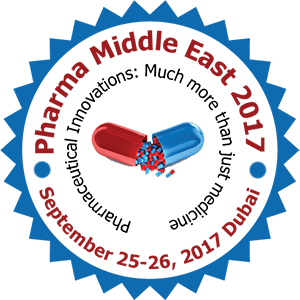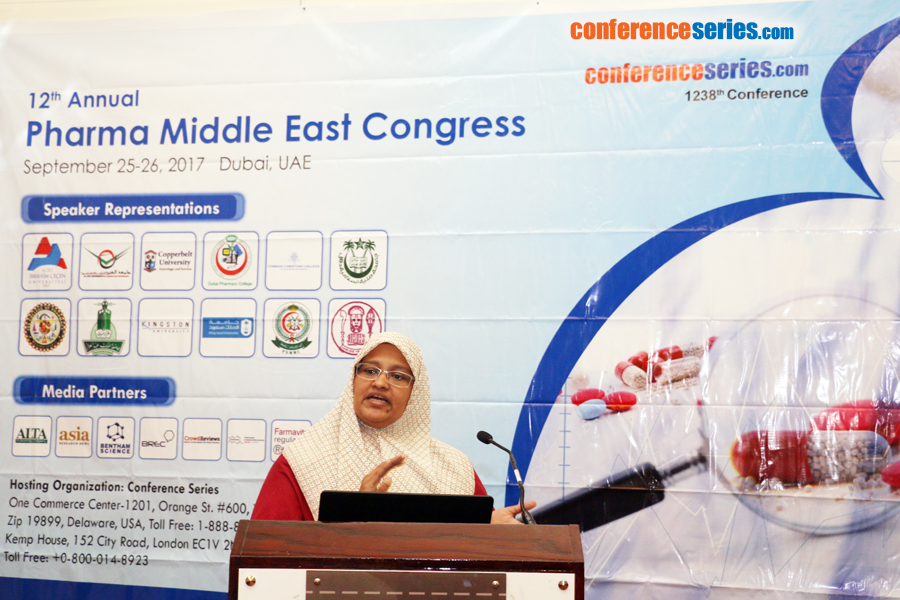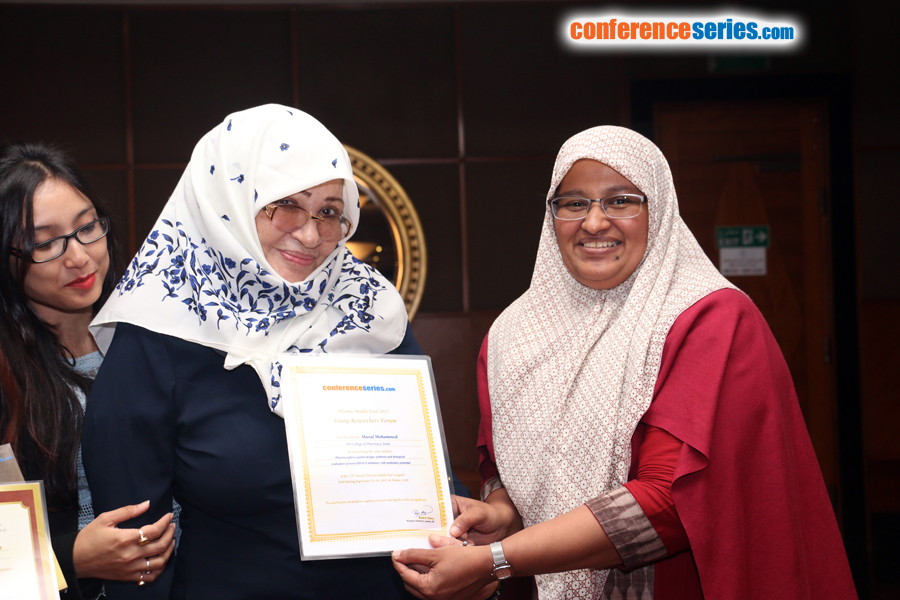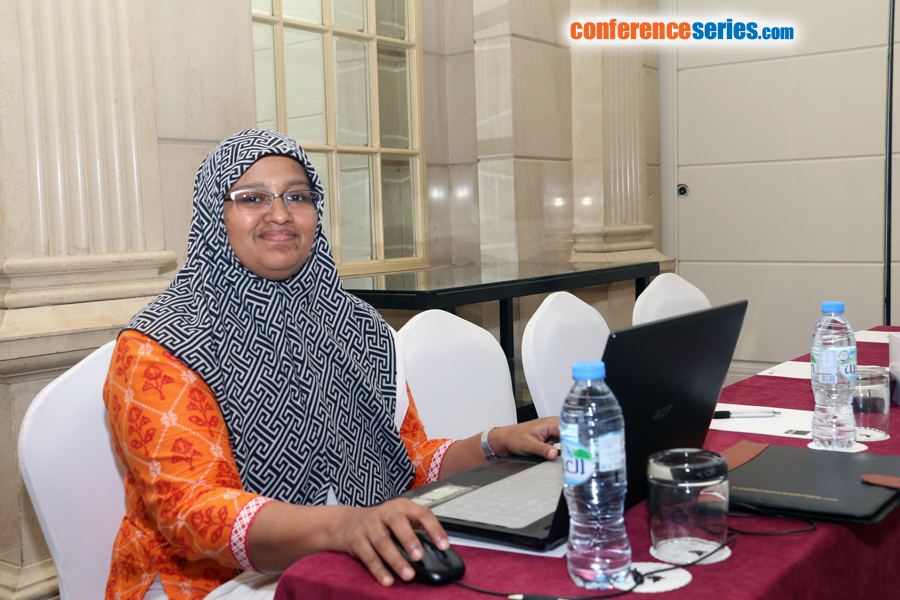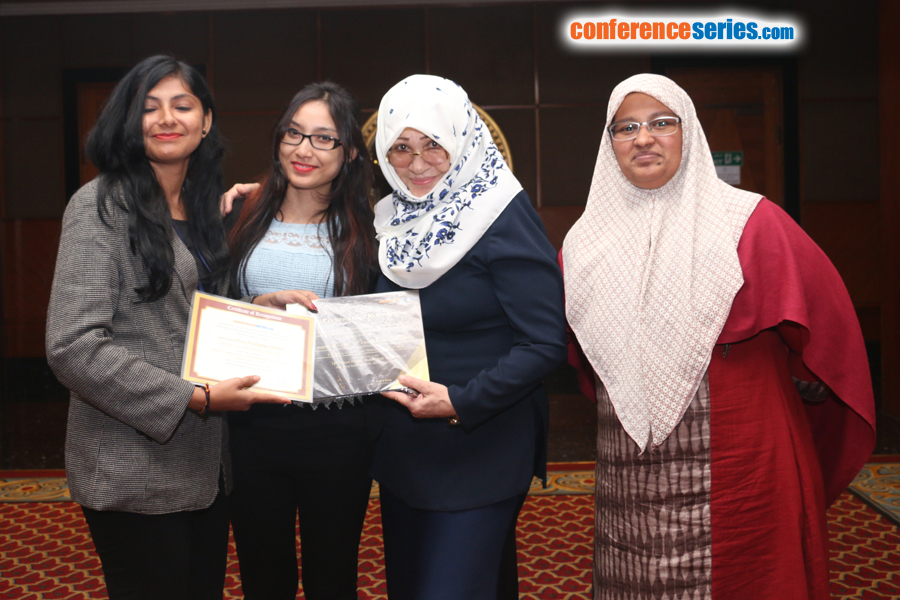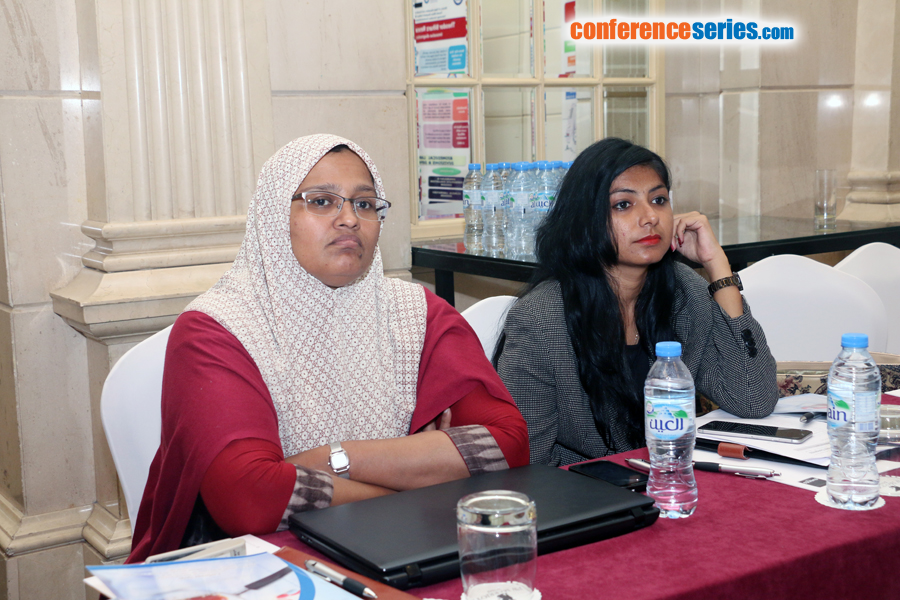
Manal Mohammed
J. S. S. College of Pharmacy, India
Title: Pharmacophore guided design, synthesis and biological evaluation of novel HDAC8 inhibitors with antitumor potential
Biography
Biography: Manal Mohammed
Abstract
Epigenetic regulation of gene expression is explicitly controlled via chromatin remodeling, which in turn is controlled through post-translational modifications (PTM) of histone tails. The known PTMs include acetylation, methylation, phosphorylation, sumoylation, and ubiquitylation. In neoplasms, the mechanism of histone acetylation gets imbalanced through the overexpression of histone deacetylase (HDAC) and/or inactivation of histone acetyl transferase (HAT). Moreover, it extends to a plethora of effects including aberrant gene expression, oncogene activation, tumor suppressor gene inactivation and tumor progression. HDAC inhibitors regulate the gene expression and display anticancer potential. In the present study, a pharmacoinformatic approach was applied to develop a pharmacophore model based on a data set of 42 N-(2-aminophenyl)benzamide analogues reported for HDAC inhibitory profile. The generated model comprised of six chemical points, namely two hydrogen bond donors, two hydrogen bond acceptors and two aromatic rings. The statistically validated model (R2, SD, RCV2, etc) was further employed as a basis to design a library of 138 leads, which was checked for matching fitness against the model. The final hits were selected for chemical synthesis depending on binding interaction(s) after molecular docking, binding free energies and in silico ADME properties. These synthesized hits, containing oxadiazole and thiadiazole heterocycles, were investigated for their in vitro HDAC8 inhibitory and antitumour activity. Among all the compounds, the hydroxamic acid analogue containing p-tolyl substituted thiadiazole displayed better HDAC8 inhibitory potential and significant anticancer activity in comparison to FDA approved HDAC inhibitor, SAHA. These results warrant further investigations to substantiate the compound as a promising drug for treatment of cancer.
